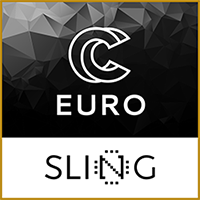The three-day workshop is aimed at researchers, engineers, students and others interested in CFD and OpenFOAM (OF). Basic and advanced applications of the open source fluid simulation system OpenFOAM will be presented. The workshop will take place over three consecutive mornings via the Zoom system (zoom link will be published shortly).
Description: The three-day workshop includes a presentation of the basic and advanced OpenFOAM usage, with explanation of programming of new sets within the framework. The basic part includes steps of making a mesh, setting boundary / initial conditions, running the problem on the HPC system and reviewing the results. The advanced part covers more complex cases with advanced application usage. What is not covered in the OpenFOAM can be upgraded within the software environment with the implementation of your own code. Showcases and hands-on cases will be presented.
For students, academics and industry professionals who want to learn about the OpenFOAM open source CFD platform.
The training takes place online, in the morning. The interactive work is done through remote access to the HPC system at ULFS.
After the training you will :
- Be able to connect to HPC@ULFS with NoMachine client and work in HPC Linux environment,
- Understand the theoretical background of the Computational Fluid Mechanics (CFD), esspecially of the Finite Volume Method (FVM),
- Be able to set up CFD mesh using different open source programs for CFD mesh design (OF – Block Mesh, GMSH),
- Be able to setup complete OF case (mesh, pysical model, inital and boundary conditions, ...),
- Be able to setup and run various OF cases in parallel on an HPC cluster,
Be able to preview and post-process OF results.
Difficulty: Intermediate
Language: According to the applications
Tridnevna delavnica je namenjena raziskovalcem, inženirjem, študentom in drugim, ki jih zanima tematika CFD z uporabo odprtega programskega CFD okolja OpenFOAM (OF). Predstavljena bo osnovna in napredna uporaba, s prikazom na primerih v treh zaporednih dopoldnevih, preko Zoom Sistema.
Opis: Tridnevni sklop obsega predstavitev osnovnega dela uporabe, naprednega dela uporabe in programiranja novih sklopov znotraj OpenFOAM. V osnovnem delu je predstavljen osnovni del uporabe, kjer so predstavljeni koraki izdelave mreže, robnih/začetnih pogojev, poganjanja problema na HPC sistemu in pregledovanja rezultatov. Napredni del pokriva bolj kompleksne primere z dodanimi naprednimi možnostmi uporabe. Kar v sistemu ni pokrito se da nadgraditi v programskem okolju. Prikazana bo tudi uporaba programskega dela na osnovnih primerih.
Izobraževanje je namenjeno študentom, zaposlenim v akademiji in gospodarstvu, ki si želijo spoznati odprto kodno CFD platformo OpenFOAM.
Izobraževanje poteka preko spleta, v dopoldanskem času. Interaktivno delo poteka preko oddaljenega dostopa do HPC sistema na ULFS. Zoom povezava bo objavljena v kratkem.
Zahtevnost: napredna
Priporočeno predznanje:
Osnove Linux operacijskega sistema in osnove mehanike tekočin ter osnove Python programiranja.
Jezik: glede na prijave
Organizer/Organizator
LECAD laboratorij, Fakulteta za strojništvo, Univerza v Ljubljani

Predavatelji
| Ime: | Dr. Pavel Tomšič |
| Opis: | He is a research assistant at ULFME and is well qualified for several HPC related topics. He is actively involved in efforts to raise competencies in the field of supercomputing, such as the Partnership for Advanced Computing in Europe (PRACE). He is also coordinator of Erasmus + project SCtrain - a strategic partnership for the transfer of knowledge from supercomputing between Slovenia, Austria, the Czech Republic and Italy. As part of the EuroHPC project for the establishment of European National Competence Centers in the field of supercomputing (EuroCC), he is the champion for Training and Skills Development for NCC Slovenia. |
| E-naslov: | pavel.tomsic@fs.uni-lj.si |
| Ime: | Dr. Aleksander Grm |
| Opis: | Aleksander Grm graduated with a Bachelor's degree in Physics from the Faculty of Mathematics and Physics at the University of Ljubljana. He then completed a Master's degree in Applied Mathematics at ICTP/SISA in Trieste, Italy. After the MSc, he continued his studies at the University of Kaiserslautern in Germany and obtained a PhD in Industrial Mathematics. After the PhD, he worked partly in academia and fully in industry. In 2014, he moved to the University of Ljubljana to work in basic and applied research and to teach young people mechanics and mathematics at the engineering level. |
| E-naslov: | aleksander.grm@fs.uni-lj.si |



